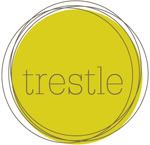Each time we ask our readers what they're interested in, we invariably get an inquiry about budgeting. With a new year just getting started, we thought it was time to revisit the topic. A year ago we ran a YNAB giveaway and offered an additional entry to any of you who left a budget-related question in your comments; I read through them as I thought about what to post today...
There were a lot of questions about how to cut back. The best way to cut back is to make and live on a budget, but let's be clear about one thing - budgeting does not mean living like church mice. Budgeting simply means deciding beforehand how you will spend your money instead of wondering where it all went after the fact. But if you do want to cut back, budgeting increases awareness of spending, and careful record keeping allows you to see that you are, in fact, nickel and dime-ing your money away at Target. The best way to cut back and become wiser about your spending habits is to tie yourself very closely to the outflows - that is, record each one. YNAB (the budgeting software we use) recently introduced a budgeting app for the iPhone. I downloaded the app a few days ago and am already impressed at what a difference this new "closeness" with my purchases is making. I am spending more mindfully - allowing me to spend on the things I really value and cut back on everything else.
A few of you seemed overwhelmed at the very proposition of creating a budget.
I thought it might be helpful to tell you a bit about how we budget at our house - this will hopefully answer several of the questions left in comments a year ago. I'm not pretending to be an expert, but this system works for us.
Because my husband is self-employed, our income is variable. We start with a sum that we know will cover our monthly expenses. We then allocate those funds to the categories we have chosen, starting with the most important categories first. For us, these categories are:
*Tithing (10%)
*Charitable Giving
*Savings (this is long-term/retirement savings that we "don't touch." We save at least 10% to long term every month.)
*We have a reserve of 6 months of living expenses on hand. If we didn't have this, we would be putting a little away each month to build it in case of job loss, disability or other emergency.
*We also put aside money every month for car repairs/to save for a new vehicle, which we know we will eventually need. I recommend that you try to anticipate one-time expenses that are likely to arise and make sure that you start building savings for these kinds of things - car repairs, medical bills (at least enough to cover the deductible on your plan), Christmas, etc.

Here's a screenshot of the YNAB budget interface, in case you're curious. (p.s. this is not our financial information)
We then allocate the remaining funds between the rest of our categories, also arranged in order of importance. When we first started budgeting and money was really tight, we had our categories broken down very specifically. Now we care more about the cash flow in and out than the little details, and our categories have become more broad. If you're just starting out, I think it's good to be specific; you want acute awareness.
We budget for gas, insurance (health, car, and life), utilities, kids (clothes, incidentals, etc.), miscellaneous, date night, fun funds (my husband and I each get a certain amount of money every month that we don't have to be accountable for in the budget - fun money. This has saved our budget. And maybe our marriage. However, in months when money is really tight, we don't fund these (and sometimes others of the discretionary categories as well). It's sad.)
If we have money leftover after our necessary categories are funded, we talk about what we want to do with it. Often we'll think of a mid-term goal we want to achieve (take a vacation, buy a new appliance or piece of furniture) and we'll stick the excess in a "save to spend" category and let the excess accrue until we're ready to make a purchase.
At the end of each month we reconcile our actual spending with our projected budget. YNAB makes the process slick and swift.
I know this is a lot. I'm sorry if it was overwhelming or confusing. Please feel free to ask questions in the comment thread. I want to say two things before I wrap it all up: some things get easier as you make more money, but a lot of things don't. Don't wait to reach some arbitrary income horizon before you start saving, or giving. Do it now. Even if it's just a tiny bit. If you can't be generous with a little, you (probably) won't be generous with a lot. If you can't live beneath your means with a little, you (probably) won't live beneath your means when they are more substantial. And finally, don't be discouraged by the distance between where you're at and where you'd like to be. Just start. Make small changes. Do what you can. Progress will come. And so will peace.
xo,
Em
*** !Giveaway! ***
We do all of our budgeting with YNAB. We love it. (You already know as much - and if not, you can read about it here). Today we're giving you the opportunity to win a copy of the latest version of the software.Leave a comment to enter. Additional entries given for tweeting/facebooking/blogging about this giveaway. Please leave an additional comment for each additional entry. And please make sure we can contact you through your comments - we don't like hunting down winners!









